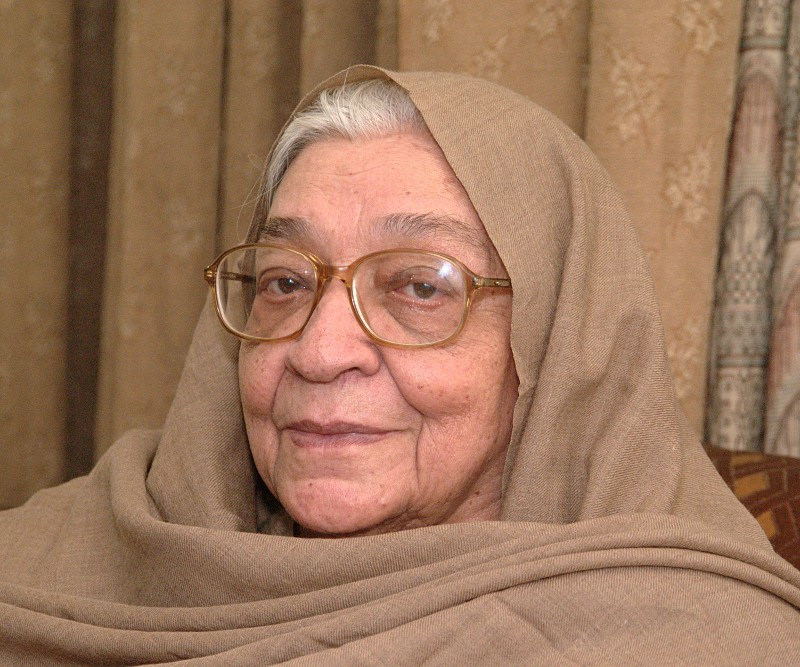A bold writer, national award winner, and ‘grande dame’ of Hindi literature, Krishna Sobti passed away at 94 on 25 January 2019. Ashok Maheshwari, a close friend of Sobti’s, tells the Outlook India that the renowned fiction writer was admitted for the past two months. She had trouble breathing and had been in the ICU for the past week.
“She was about to complete her 94 years in February, so an age factor was there no doubt,” he said, adding that “Even after being extremely sick, she was very much aware of her thoughts, about what was happening in the society.”
She passed away today but her books and thoughts will live on forever.
Also known as the grande dame of Hindi literature, Sobti has published many noteworthy works since the second half of last century that dealt with bold themes like female identity dysphoria and sexuality.

Born on 18 February 1925 in the Gujarat province of now Pakistan, Sobti moved to New Delhi after partition and had been churning out exceptional literary works ever since.
Most renowned for her 1966 novel Mitro Marajani, which is an impenitent saga of a married woman’s exploration of sexuality, Sobti’s other noteworthy works include Daar Se Bichchuri, Surajmukhi Andhere Ke, Yaaron Ke Yaar, Zindaginama, along with some of her short stories like Nafisa, Sikka Badal gaya and Badalom ke ghere.
“Sobti is a path-breaking novelist. She has immensely enriched Hindi literature,” the statement by the board chairman Namwar Singh, who is a noted scholar, writer and critic himself, said.
The Jnanpith award for 2017 was also awarded to her, as one of India’s most celebrated Hindi writers.
Following the unanimous decision amidst the members of the Jnanpith Selection Board, the 93-year-old was decorated with India’s highest literary honour, in recognition of her outstanding contribution to Indian literature.
Apart from the award above, the nonagenarian litterateur has been felicitated with numerous recognitions and accolades.
From Sahitya Akademi Award in 1980 to the coveted fellowship of Sahitya Akademi in 1996, the lady has also been the recipient of Katha Chudamani Award, Shiromani Award, Hindi Academy Award and Shalaka Award of the Hindi Academy in Delhi. In 2010, Sobti was nominated for the prestigious Padma Bhushan by the government of India. However, she chose to decline the offer.
You May Also Like: Premchand to Bachchan – These 15 Hindi Classics Are Absolute Must-Reads!
A melting pot of Hindi, Urdu and Punjabi influences, what makes Sobti’s writing style unlike any other is the way she has chosen to experiment with new writing styles and narrative structures.
With themes far-ranging from Indo-Pak partition and relationships between men and women to the ever-changing dynamics of the Indian society and the slow decay of human values, most of her works revolve around strong and audacious characters, making her stories engaging and unforgettable.
Like this story? Or have something to share?
Write to us: contact@thebetterindia.com
Connect with us on Facebook and Twitter.
NEW: Click here to get positive news on WhatsApp!
If you found our stories insightful, informative, or even just enjoyable, we invite you to consider making a voluntary payment to support the work we do at The Better India. Your contribution helps us continue producing quality content that educates, inspires, and drives positive change.
Choose one of the payment options below for your contribution-
By paying for the stories you value, you directly contribute to sustaining our efforts focused on making a difference in the world. Together, let's ensure that impactful stories continue to be told and shared, enriching lives and communities alike.
Thank you for your support. Here are some frequently asked questions you might find helpful to know why you are contributing?

